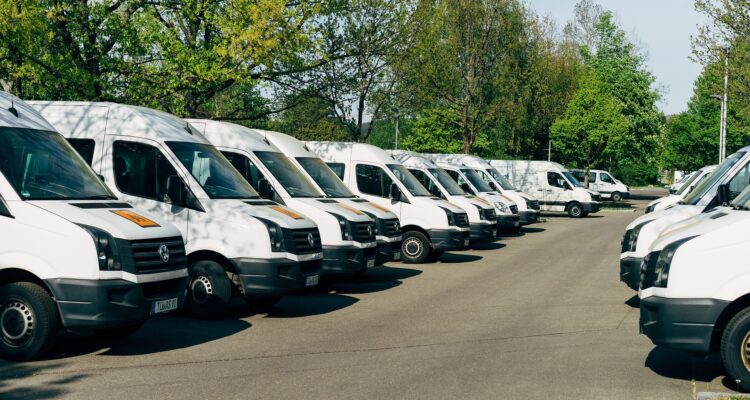Yesterday’s (22/11/2023) Autumn Statement delivered by the Chancellor of the Exchequer, Jeremy Hunt had some measures that effect the transport, logistics and fleet management industries. The following are some of the opinions expressed by leaders as to how they would affect the industry. As usual, there were elements that were positive but also elements where the Chancellor could have made a difference.

Image by Dean Moriarty from Pixabay
Peter Golding, managing director, FleetCheck, said: “This is probably the kind of Autumn Statement you’d expect from a government that will be facing a general election sooner rather than later. Its big moves were the NI cut designed to make consumers feel as though their finances are improving and the full capital expensing, designed to boost investment and the economy.
All of these are reasonable moves and should have some positive effects but there was little here that will help the fleet industry specifically and the general backdrop is one where the drag and damage caused by everything from Covid to Brexit have all had very real effects.
The next couple of years will be difficult for fleets, with budgets under pressure and an ongoing need to minimise costs, although we are sure that fleets managers will show their customary ingenuity and dedication in tackling these issues .”
In today’s Autumn Statement, Chancellor Jeremy Hunt confirmed that full expensing would be made permanent but retained the historic exclusion of the vehicle rental and leasing sectors. A formal government consultation into if the exclusion could be removed in the future was confirmed, following the creation of an industry working group earlier this year.
Full expensing was introduced earlier this year. It provides a 100% first year allowance that enables companies to write off the full cost of their investments against their corporation tax bill in the first year. The rental and leasing sectors were excluded from claiming the powerful investment allowances, but the Government committed to working with the vehicle rental and leasing sectors to try to deliver a more supportive capital allowances regime that will benefit all fleets.
Commenting on the announcement, BVRLA Chief Executive, Gerry Keaney, said: “The Government is banking on permanent full expensing to unleash a wave of new business investment across the UK, but by excluding rental and leasing it is missing a massive opportunity. Our research shows that opening these powerful tax incentives up to the rental and leasing sectors could unlock an additional £1bn worth of investment into low and zero emission commercial vehicles.
“We will continue to work closely with HM Treasury and HMRC on their technical consultation and push for the unfair vehicle rental and leasing exclusion to be removed.”
Caroline Sandall-Mansergh, Consultancy and Channels Development Manager, Alphabet GB, said:
“We welcome the permanent implementation of full expensing to encourage continued support for spend on machinery such as vans; this will create a lower cost of entry for enterprises looking to invest. However, the scope of the policy must go further, expanding to cars and leased vehicles that will further promote fleet growth across the UK. We hope that over the coming months the Chancellor will work closely with the industry to develop a policy that broadens fleet support overall.
“While the increase of the national living wage (NLW) is another welcomed improvement for the public, it is also important to acknowledge the impact this will have on salary sacrifice schemes. As the NLW increases, the threshold for salary sacrifice eligibility increases with it, meaning lower-earning employees may not be granted the benefit. With this in mind, it will be important for those who manage fleet to review the schemes they have in place, seeking expertise where needed, to ensure employees’ access to benefits such as company vehicles can remain in place without significant disruption.”
David Bushnell, Director of Consultancy and Strategy, Fleet Operations, said: “Chancellor Jeremy Hunt has begun flicking through the pages of the pre-election playbook to announce measures in his Autumn Statement, designed to help stimulate business growth.
“But for fleet operators his notable failure to cancel the planned increase in fuel duty next April will serve to dampen any early festive cheer. If this goes ahead, the first rise in over a decade would come at a time, in the wake of a cost of business squeeze, when fleets can least afford it.
“Making the full expensing capital allowance tax scheme, introduced in the last Budget, permanent certainly comes as welcome news, helping to support many fleets’ bottom line, along with the transition to e-mobility.
“However, it is only cash-rich business with access to capital that benefit. Failing to extend the scheme to the leasing and rental sectors continues to prove a missed opportunity to support the wider fleet industry, and its critical role in driving business investment and transport decarbonisation.
“Elsewhere, following the recent decision to delay the ban on the sale of petrol and diesel cars and vans, there had been high hopes that significant measures would be announced by the Chancellor to help counteract the impact of this by incentivising EV adoption. But this was not forthcoming in any meaningful way, and once again, has proved a missed opportunity.”
Lucie Hyde, Managing Director of LNH Transport said: “Following the Autumn Statement, there have been various announcements in line with the transport industry from the Government.
“Logistics investment and consideration is needed urgently to secure the future of the UK transport and logistics industry. With every single business needing and relying on logistics and transport as an essential part of their business, especially the UK manufacturing sector that export a significant amount of their product, the announcement of £4.5 billion of funding has come at a pivotal time, securing growth in our economy and contributing to the future of logistics and export.
“With the Government also announcing an incentive to improve roads, allocating an extra £8.3 billion to roads resurfacing across England, it is a good start to help with the maintenance of our roads and motorway network, of which we have seen a decrease over recent years directly effecting delivery times, conditions of delivery vehicles and a knock-on effect to the wider supply chain.
“There are still many factors that are still to be addressed in order to boost the future of the UK transport industry. We have seen the cost of fuel rise dramatically in recent years, we’re exporting less into EU and non-EU countries, but export times remain high as the post-BREXIT paperwork continues to be navigated, as well as the drop in shipping requirements since COVID restrictions were reduced; an area of UK logistics that needs to be monitored and supported. If these factors were looked at, it could also help keep inflation under control, which is a main focus of the Government.
The logistics industry must continue to push policy makers to keep UK logistics businesses growing, and to urge for more financial measures to support business investment.”
Confederation of Passenger Transport’s CEO Graham Vidler said: “The £2bn earmarked to support the manufacturing, supply chain and development of zero emission vehicles is potentially good news for the bus and coach sector. The government now needs to ensure a significant proportion of this funding is invested in delivering greater battery ranges for buses and coaches and a sustainable model for hydrogen fuel cells, to accelerate the bus and coach sectors’ transition to zero emission.”
The Chancellor’s announcement did however miss the chance to complete the National Bus Strategy, after the welcome funding for services in the North and Midlands last month.
Vidler added: “It is a shame, though, that the Chancellor has not taken the opportunity today to replicate the recent investment for buses in the North and the Midlands across the rest of the country. Frequent, fast, reliable buses are required by millions of people every day to get to work, school, and access essential services. Communities in the South are at risk of being left behind without matched investment. This should not be a postcode lottery.”
Liam Griffin, CEO of Addison Lee: “We welcome the Chancellor’s commitment today to reviewing VAT on private hire journeys. After the Court ruling against Uber in 2021, Addison Lee took the decision that the right thing to do – legally and morally – was to apply VAT on the full fare paid by our passengers.
“No other major operator has followed us in paying the full VAT on the full fare. In fact, the absence of clear guidance from HMRC means that most have sought to pay as little VAT as possible.
This leaves our business, as well as other long-standing operators in our local communities, at a competitive disadvantage and potentially represents a significant loss in tax revenue due to the Exchequer.
“It is crucial that the Government seeks to level the playing field in the private hire industry in London and across the country, and we would welcome clear guidance from HMT and HMRC on how VAT should be applied and enforced.”
Edmund King, AA president, said; “To help smooth the electrification journey, The AA welcomes plans to speed up access to the Grid, investment in zero emissions within the automotive industry and funding to attract new engineers into the sector.
“We would still like to see incentives for drivers to help them to take part in the zero emission transition when they are ready to do so. Hopefully these incentives, a further freeze in fuel duty, and a cut in Insurance Premium Tax will be outlined in the Spring Budget.”
Scott Haddow, Chief Executive Officer at Nexus Vehicle Rental, said: “The chancellor’s Autumn budget announcement should have helped to ease worries that the fleet and automotive sector has had for months. We welcomed the news last week that £2billion has been earmarked for investment in clean energy practices in the automotive sector, as this will greatly help the industry better contribute towards a net-zero future by developing more zero-emission vehicles.
“However, whilst the development of the vehicles themselves is a good start, the failure to address the accompanying infrastructure in today’s statement is short-sighted and this will still act as a barrier to EV adoption for many vehicles. Investment in EV infrastructure would fuel the growth of the electric vehicle market, create jobs, stimulate the economy, and establish our country as a global leader in the clean energy transition. The development and investment in this necessary infrastructure should be kept high on the agenda, playing a significant role in plans to achieve net-zero by 2050.”







